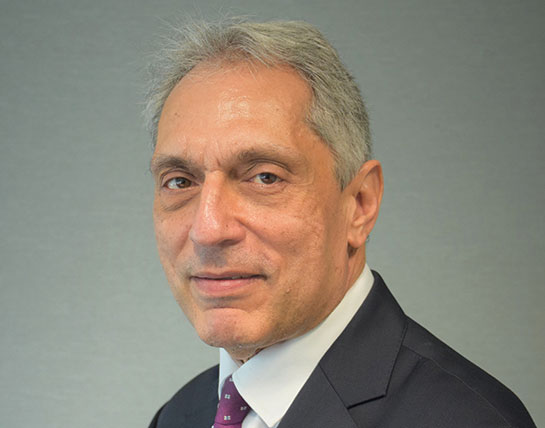Corruption Matters - October 2022 | Issue 60
New ICAC Commissioners commence

"The quality of our work and innovation in how we deliver are fundamental to our effectiveness.” – new Chief Commissioner, the Hon John Hatzistergos AM.
The NSW Independent Commission Against Corruption (ICAC) welcomed three new Commissioners in August and September. Chief Commissioner the Hon John Hatzistergos AM, Commissioner Helen Murrell SC and Commissioner Paul Lakatos SC are only the second Commissioners to be appointed under the three-commissioner model. Corruption Matters met with Chief Commissioner Hatzistergos to find out about his impressions and what to expect over the next five years.
![]()
You started your five-year tenure in August 2022. Please describe your first impressions.
Although I have only just started my tenure, the Commission’s workings are not unfamiliar to me. I previously chaired the Parliamentary Joint Committee and had ministerial responsibilities which intersected with the Commission’s responsibilities. I have also managed to know many previous heads of the Commission. My first impressions on “the inside” are very positive. The staff have made me feel most welcome and I have been impressed by their skill and commitment.
The NSW ICAC is the longest-serving anti-corruption body in Australia. Do you have any personal memories of the time of the announcement and when it was eventually established in 1988?
The period leading to the Commission’s establishment saw a number of events involving senior political and judicial figures that challenged the integrity of public institutions. As a student and subsequently a young solicitor in the 1980s, I recall these events. Public concern ultimately saw the establishment of:
- the Local Court with Magistrates no longer part of the public service
- the Office of the Director of Public Prosecutions
- the Judicial Commission, and
- subsequently the ICAC.
The creation of an autonomous overriding body with power to commence its own investigations utilising coercive powers was controversial. The justification for its creation was that corruption is difficult to detect as it often involves consensual conduct. We’ve seen that debate repeated in recent times with regards to the proposed establishment of a national body.
This is the second phase of the three-Commissioner model, in which you will be working alongside Commissioners Helen Murrell SC and Paul Lakatos SC. How does the model work to achieve the goals of the Commission?
Whilst this is the second phase of the three-Commissioner model, the Commission has previously embraced Assistant Commissioners and Deputy Commissioners. It also once had a statutory Operations Review Committee which had some responsibility for operational decisions. The governance and oversight arrangements have since developed.
The three-Commissioner model mirrors that which previously applied to the Law Enforcement Conduct Commission. I acknowledge that there are different views about it. However, as it stands, it is incumbent on all of us to do our best to make the model work. For my own part I look forward to working with both my colleague Commissioners and sharing in their knowledge and insights.
What goals would you like to see achieved in the next five years?
The most immediate goal is to finalise a new strategic plan including a review of our performance measuring. Securing the Commission’s resourcing will assist in realising the plan’s ambitions. The landscape of government service delivery is changing rapidly particularly with increased automation and expanding use of external procurement. This presents new corruption risks and an increase in the complexity of the work that the Commission is asked to undertake. All of this underlies the importance of the Commission being prepared for the challenges that lie ahead.
Describe what you see as the role of the Commission with regard to corruption prevention?
This is a fundamental component of the Commission’s work as our strategic plan will emphasise. The Commission has been innovative in reaching out with its services including use of online learning, social media and workshop formats. The quality of our work and innovation in how we deliver are fundamental to our effectiveness.
You have had a distinguished career encompassing law, politics and academia. What have been some professional highlights for you?
Although I have had the privilege of occupying a number of roles, I do not dwell on them as ends in themselves. Nonetheless, each has been important in the opportunity they offered to make a mark, effect change and bring about improvement.
I will leave it for others to assess the highlights. However, in a career such as I have had, you cannot lose sight of the ordinary citizens affected by what you do.
In addition, it has been satisfying over the course of my journey, to have the opportunity to assist in the development of staff with whom I have interacted. Many of them have gone on to build successful careers for themselves, both domestically and overseas. Yet they stay in contact and still seek advice from time to time.
Is there anything further you would like to say?
Since the Commission started over 30 years ago, the concept has been embraced by all states and territories. The Commonwealth is also proposing to legislate a similar integrity body. This acknowledges the value of such a body and the community support that it enjoys. Although we have significant responsibilities, this is complimented by an obligation to ensure that the trust reposed in us is maintained and enhanced. I look forward with my colleagues to the important tasks that lie ahead.
![]()
|
